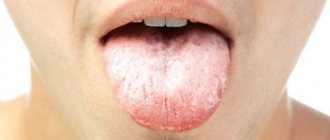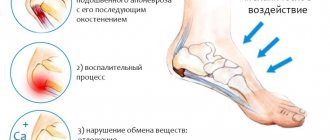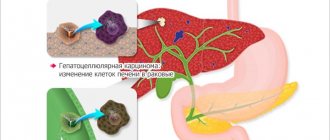Is heartburn the first symptom of pregnancy?
When heartburn occurs, gastric juice enters the esophagus, irritating the mucous membranes.
The walls of the esophagus become inflamed, causing pain and nausea. When a woman is pregnant, the enlarged uterus presses on the stomach, causing gastric juice to enter the esophagus. Heartburn and early toxicosis in pregnant women are caused by high levels of progesterone. Without the participation of this hormone, it is very difficult for a woman to bear a child, so an increase in progesterone during pregnancy is considered a variant of the norm. Most representatives of the fair sex determine pregnancy by the absence of menstruation. But heartburn may well be the first sign of pregnancy. This is not an uncommon occurrence during pregnancy.
Heartburn may well be the first sign of pregnancy.
Heartburn is considered the first sign of pregnancy, which can haunt a woman throughout the entire period of gestation. In the first months of pregnancy, heartburn is caused by significant physical changes occurring in the pregnant woman’s body. And after the sixth month, the expectant mother suffers from heartburn because a small life is growing in her womb. A growing baby puts pressure on a woman’s internal organs, which causes gastric juice to reflux into the esophagus and, accordingly, heartburn.
Heartburn that occurs during early pregnancy may indicate significant changes in a woman’s hormonal levels. The level of progesterone increases in the body of the expectant mother, and without this hormone the fetus cannot develop properly. It is this hormone that is responsible for relaxing the uterus, preventing it from becoming toned.
Progesterone relaxes not only the uterus, but also all the internal organs of a pregnant woman. This means that the sphincter, located between the esophagus and the stomach, reduces tone. This leads to the fact that the stomach capacity is thrown into the esophagus, and this process causes heartburn. High levels of progesterone also increase acidity in the fairer sex in an interesting position.
The contents of the stomach enter the esophagus, which causes heartburn during pregnancy.
Some representatives of the fair sex do not know anything about heartburn, so they need clarification. During pregnancy, the symptoms of heartburn are as follows:
- Frequent belching with sour contents. Belching is provoked by increased acidity, which is a frequent companion of pregnancy.
- Feeling of discomfort in the esophagus or behind the sternum. This sensation is caused by irritation of the mucous membrane of the esophagus.
- A feeling of fullness present in the upper gastrointestinal tract. This symptom is caused by disturbances in the digestion of food. Trying to get rid of the burning sensation that occurs in the esophagus, the fair sex swallows saliva along with air. This reflex also contributes to heaviness in the gastrointestinal tract.
- Nausea. Since the movement of food in the stomach slows down, the pregnant woman has the urge to empty her stomach.
- Heavy salivation. The glands that produce saliva work at an accelerated pace. The body of the expectant mother tries to “wash away” the acid in the esophagus with saliva.
Since heartburn and other discomfort in a woman occur in the digestive tract, they intensify after eating. You may need to reconsider a woman's daily diet or reduce portion sizes. If this does not help, you should consult your doctor.
With the onset of pregnancy, significant changes in the female body do not become visually noticeable immediately, but manifest themselves as unpleasant sensations in well-being. GERD is one of these manifestations.
A week after conception, the female body begins to actively produce the hormone progesterone. It is during this period that the embryo attaches to the walls of the uterus. Progesterone is necessary to reduce the muscle tone of the uterus and prevent miscarriages and premature birth. It keeps the inner layer of the uterus (endometrium) loose. By maintaining the conditions necessary for the normal development of the fetus, progesterone affects the entire body as a whole.
Heartburn in the first week of pregnancy is one of the manifestations of increased hormonal levels. High levels of progesterone affect the smooth muscles of the gastrointestinal tract. The sphincter located between the esophagus and the stomach weakens, allowing food to flow from the stomach into the esophagus, causing heartburn.
Heartburn can also be caused by high stomach acid in early pregnancy. A burning sensation not only indicates pregnancy before the delay, but can continue throughout the entire period of gestation.
The appearance of heartburn cannot be interpreted as an unconditional sign of pregnancy. It is necessary to pay attention to other factors that appear during this position.
Other signs of pregnancy are:
- belching, nausea and vomiting, changes in taste sensations in the mouth;
- a feeling of fullness in the stomach - since salivation increases during pregnancy, a woman constantly swallows it, air enters the stomach with saliva, which leads to a feeling of fullness;
- blood volume increases, blood vessels under the skin become visually noticeable, the heart begins to work differently, and a disturbance in the rhythm of the heart may appear;
- an increase in hormone levels leads to a sharp change in mood in a pregnant woman, a feeling of excessive fatigue and increased drowsiness;
- pain, like premenstrual pain, in the lower abdomen is possible, since the absence of menstruation occurs as a result of an increase in the hormone prolactin, which affects the mammary glands, preparing them for milk production;
- there is a change in the woman’s figure;
- the breasts swell slightly, painful sensations appear - this is a reaction to an increase in prolactin;
- headache;
- change in skin color.
This is a painful sensation of pain and heat behind the chest. In pregnant women, heartburn may appear even a short time after eating. It happens that it occurs in the evening, but it can also occur in the morning. The duration of this painful sensation varies - from several minutes to several hours.
The appearance of the symptom is due to the fact that some of the gastric contents enter the esophagus. No other causes of heartburn during pregnancy have a scientific explanation. There is a misconception that this condition depends on whether the mother has a boy or a girl. It's a delusion. Without knowing the causes of heartburn during pregnancy and how to get rid of this unpleasant sensation at home, many women suffer.
The passage of stomach contents into the esophagus occurs because the muscle between the stomach and esophagus relaxes. In such cases, the contents irritate the stomach. Another reason why heartburn occurs is an enlarged uterus: during this period it puts pressure on the gastrointestinal tract, which is why such symptoms appear. Nutrition is also important.
How does heartburn manifest? As a rule, in pregnant women it is associated with a feeling of heat behind the sternum. Severe heartburn during pregnancy feels very sharp and unpleasant: symptoms such as sour belching and an unpleasant taste appear.
https://youtu.be/4-cgkZ4cJrw
Factors influencing the causes of the disease
They are varied and depend on the gestation period.
- The main difficulty is the changed hormonal levels caused by the anticipation of the baby. While carrying a child, a girl’s body is saturated with a special hormone that relaxes the strength of the muscles of the uterus so that it grows unhindered and is not subject to hypertonicity and contractions. The sphincter, located at the border of the stomach and esophagus, also becomes relaxed, so gastric juice and food return unhindered to the esophagus. This leads to an uncomfortable state.
- Intra-abdominal pressure increases. This interferes with the normal functioning of the sphincter. The result is an attack of heartburn.
- High hormone levels affect food processing, slowing muscle contraction and moving ingested food out of the esophagus. The result is a prolongation of digestion time, causing gastric dysfunction and burning attacks.
- The weight of the fetus increases, the uterus presses on the internal organs. This is explained by the fact that acid appears in the esophagus and stomach. The acidity of the gastric juice increases, which increases the unpleasant feeling of warmth behind the sternum or in the upper abdomen.
Why does the symptom appear?
Why does heartburn occur during pregnancy? The following reasons contribute to this.
- The effect of progesterone on a woman’s body. This often happens in the early stages. In this case, the muscles relax, and stomach contents may appear in the upper gastrointestinal tract. This, in turn, causes heartburn.
- Heartburn during pregnancy occurs because intrauterine pressure increases in the body.
- Hormonal disorders lead to an increase in the acidity of the stomach contents. This is another reason why heartburn occurs while expecting a baby.
- Eating disorder. If you eat sour or fried foods, drink sour juice, etc., the chemical composition of gastric secretions will change.
- Heartburn in the first weeks of pregnancy can manifest itself as a symptom of toxicosis.
- Late weeks of pregnancy can also cause the above symptom due to cephalic presentation. In this case, the head strongly compresses the diaphragm, which is why the patient experiences heartburn during pregnancy.
Sometimes it is very difficult or even impossible to get rid of heartburn at home. In such cases, treatment is necessary, often in a hospital setting.
Preventing heartburn while pregnant
Heartburn in the early stages requires special preventive measures that will help eliminate it completely and make bearing a child a pleasant and joyful event.
- Avoid eating foods that cause burning;
- After eating, do not lie down or bend over for the first 30 minutes;
- Eat often and in small portions. After each meal, a pregnant woman should remain a little hungry;
- When sleeping, do not lie horizontally; your head should always be elevated. It is not necessary to change the bed; you can put a couple of pillows under your head;
- No need to sleep on your back;
- It’s worth reconsidering your wardrobe and putting aside fashionable skinny blouses and jeans for a while. You should give preference to loose and light outfits.
It does not matter at what time heartburn begins. The methods of combating and eliminating it are the same for each case - this is a diet and the right image. However, if all of the above tips and methods do not give any result, then this is a reason to visit your doctor, who will help eliminate the possibility of inflammation of the stomach walls or other intestinal disease.
Prevention and recommendations
Heartburn in the first months of pregnancy can be avoided if:
- clothes will not put pressure on the abdominal area;
- avoid sudden movements – bending and squatting;
- Rest and get enough sleep in a timely manner;
- avoid taking medications without a doctor’s prescription;
- the last meal will be two hours before bedtime;
- do not lie down immediately after a meal;
- Walk more - this will improve digestion and prevent heartburn;
- Before going to bed, drink a small glass of warm milk.
Gastrointestinal diseases as a cause
Take care of your health - save the VKontakte link
Heartburn can only be considered a sign of pregnancy if other symptoms are present, such as breast swelling or delayed menstruation. Stomach discomfort itself does not indicate conception. However, during the period of bearing a child, a woman is very vulnerable. During pregnancy, chronic gastrointestinal diseases, if any, may worsen.
If heartburn occurs, you should contact the woman’s gynecologist. It is important to establish the true cause of such a symptom. A woman may be prescribed an FGDS to rule out the presence of gastritis or ulcers. Although such a procedure is unpleasant, it helps prevent illness. If everything is fine with the stomach, then an ultrasound of the abdominal cavity should be done.
Heartburn often appears during exacerbation of chronic cholecystitis or pancreatitis.
In this case, the pregnant woman is prescribed a diet. Taking medications should only be done under the supervision of doctors. Most medications are contraindicated for pregnant women, so it is not recommended to independently eliminate heartburn for these ailments with pills.
As the fetus grows, processes occurring in the gastrointestinal tract may slow down. At 37-40 weeks, the fetus begins to put pressure on the internal organs, in particular the stomach. This causes gastric juice to reflux into the esophagus. Therefore, even if in the early stages a woman did not experience any problems, then in the last weeks heartburn will make itself felt. Women who have a large fetus or twins especially suffer from this symptom.
Since positive emotions are very important for a pregnant woman, the causes of heartburn should be eliminated immediately. Irritation and sleep disturbances due to this symptom cause increased production of hydrochloric acid, which further worsens the condition. The same thing happens with the production of pancreatic juice. When under stress, it is released more than usual, and this can cause serious disturbances in the gastrointestinal tract. But usually, to suppress heartburn, it is enough to adjust the diet of the expectant mother.
Products
What foods cause burning? This question interests many pregnant women.
So, the secretion of stomach acid increases when eating the following foods:
- fried, spicy foods;
- marinades;
- drinks containing caffeine;
- tomatoes;
- dishes with acetic acid;
- chocolate products;
- sour berries, fruits;
- ice cream;
- fresh baked goods, baked goods.
Remember that you should never take soda to get rid of heartburn. Such folk remedies for heartburn during pregnancy cause great harm.
You should increase the amount of foods in your diet that neutralize the effects of hydrochloric acid. It is useful to eat yesterday's bread and jelly. Some doctors recommend including papaya in your diet: it contains enzymes that help get rid of high acidity. Papaya is a useful remedy that also helps get rid of vitamin deficiency.
How to deal with heartburn during late pregnancy, if it happens often? To do this, you need to follow a strict diet. Only a gastroenterologist can prescribe it.
What should a woman do if she has heartburn?
Having made sure that heartburn could be a sign of pregnancy, the expectant mother needs to be careful. Treatment for heartburn differs from therapy used before conception. The medications that a woman receives during pregnancy will also be received by her baby. Therefore, medications that help relieve symptoms of heartburn should be prescribed by a doctor.
To relieve unpleasant symptoms, you can do the following:
- eat often, but in small portions;
- do not rush while eating, chewing each piece thoroughly;
- try to avoid getting air into the stomach;
- exclude from the diet foods that increase the acidity of gastric juice (fried, spicy, salty, etc.).
There is no need to suppress the signs of heartburn with medications. An obstetrician-gynecologist will recommend methods for getting rid of heartburn that are safe for the unborn baby and effective for the woman. It may be enough to review your diet and daily routine.
If you have heartburn, don’t immediately reach for medications – first, try to reconsider your diet.
Signs
The main symptoms are:
- Pain and heat behind the chest.
- Pain and burning in the throat.
- Bloating, but taking activated carbon tablets does not help.
- The appearance of a cough.
- Nausea, sometimes very severe.
- Increased salivation.
This condition can last up to several hours. There is a connection between certain foods and the intensity of pain and burning. Pregnant women may experience unpleasant, painful belching of air or sour. This irritates the oral mucosa.
In severe cases, an unpleasant metallic taste in the mouth is observed almost constantly. Pregnant women lose their appetite and experience an aversion to food. Against the background of toxicosis in the early stages of pregnancy, pain and burning in the chest provoke painful nausea and frequent vomiting.
Please note that against the background of a deterioration in appetite, the patient’s general condition may suffer: she experiences severe and frequent fatigue, weakness, and her blood counts deteriorate. This, in turn, negatively affects the health of the unborn baby.
How to get rid of heartburn during pregnancy? First of all, for this you need to visit a doctor and strictly follow his advice. But you can’t take medications for heartburn on your own, because it’s harmful.
Reasons for appearance
The human body is a very delicate mechanism in which everything is thought out down to the details. As soon as the fertilization of the cell occurs, the hormone progesterone increases.
Another name for it is pregnancy hormone. It prevents the remaining eggs from maturing. It also relaxes the walls of the uterus to prevent miscarriage.
This hormone acts not only on the uterus, but also on other muscles. The intestinal muscles relax, as well as the upper sphincter, which separates the stomach from the esophagus.
In a normal state, food enters the oral cavity, then into the esophagus, and then into the stomach and intestines.
Due to the weakening of the sphincter, small pieces of food, along with hydrochloric acid, are thrown back into the esophagus.
In some cases, in the early stages of pregnancy, nausea and vomiting additionally occur. There is irritation from the vomit, as well as a burning sensation with belching.
Treatment methods
Heartburn during early pregnancy is eliminated:
- proper nutrition;
- eating regimen;
- selection of comfortable clothes;
- taking medications.
You can use traditional methods, but after consultation with a gastroenterologist. Sleep position also plays a significant role, especially in the last weeks of pregnancy. Poor nutrition can cause not only heartburn, but also lead to a deficiency of nutrients in the body, so during pregnancy you should give up unhealthy foods and habits. It is unacceptable to drink alcohol and smoke. Even a relatively small dose of alcohol can cause a burning sensation in the stomach and vomiting.
A proper diet means eating regularly. It is better for the expectant mother to eat in small portions 5-6 times a day. In this mode, gastric juice, which includes hydrochloric acid, digests food. When the stomach is empty, hydrochloric acid aggressively affects the walls of the stomach, which provokes the development of gastritis and the appearance of painful heartburn.
You should not eat in a hurry, swallowing air, otherwise there will be frequent belching after eating. To eliminate the manifestations of toxicosis, doctors recommend preparing something light in the evening that you can eat in the morning without getting out of bed, for example, biscuits or nuts. In the morning, lying in bed, eat 20-30 g of food and lie down for another 10-15 minutes. You should not eat cookies with filling or cream. These products contain a lot of fat, which can cause heartburn, nausea and vomiting.
The expectant mother should avoid overeating. The last meal should be no later than 2 hours before bedtime. It is better to prepare dinner from light foods. You should not drink carbonated drinks, as carbon dioxide can cause discomfort by irritating the walls of the stomach. If you feel a strong feeling of hunger, it is recommended to eat 100 g of low-fat cottage cheese or drink a glass of non-acidic kefir.
Can heartburn appear before the delay?
Progesterone production increases immediately after conception. Most women feel its effect on the body after the 5th week of pregnancy (after about a week of delay). Changes in hormone levels may manifest themselves in different ways depending on the individual. Some women, even before the delay, begin to notice nausea in the morning, a burning sensation in the chest. Unpleasant sensations may be combined with intestinal upset.
Heartburn is an indirect sign of pregnancy. This symptom can indicate that conception has occurred only in combination with other precursors.
The first signs of pregnancy, in combination with which heartburn can be regarded as a signal of future motherhood:
- mood swings;
- increase in body temperature to 37-37.3°C;
- migraine;
- weakness;
- swelling of the mammary glands;
- increased sensitivity of the nipples;
- nagging pain in the lower back, lower abdomen;
- cardiopalmus;
- vein tension
In addition to these precursors, toxicosis may begin before menstruation is delayed - nausea, vomiting, changes in taste perception. Heartburn that occurs early in pregnancy is often associated with these symptoms. A strong burning sensation appears after vomiting, because... the walls of the esophagus are irritated by gastric juice.











